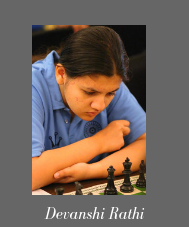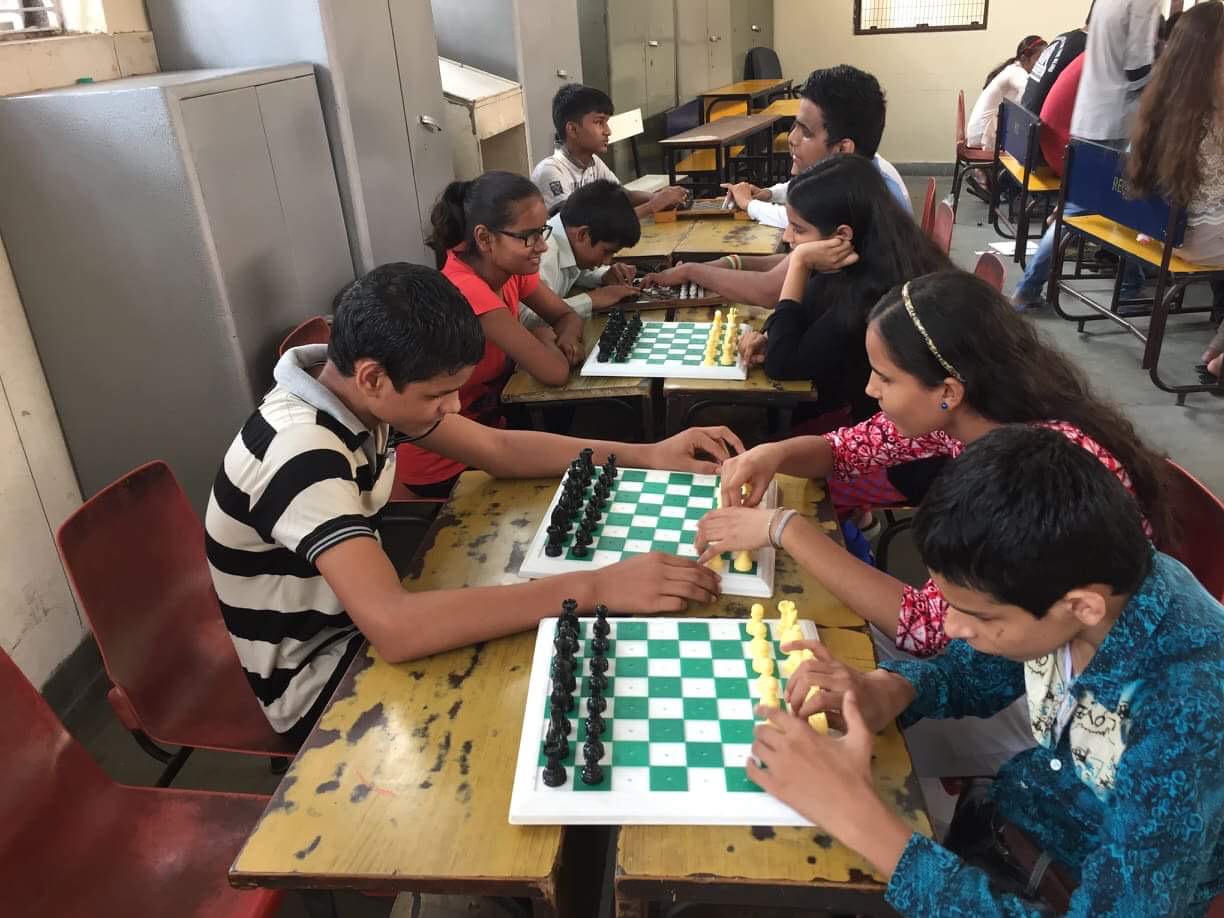Blind players are no pawns in the game of chess
November 8th, 2018 The FIDE World Chess Championship 2018 is scheduled for this month in London, England and Devanshi Rathi 18 years old, a Correspondent from New Delhi, India now based in California, USA is a lover of the game. She argues that beyond building critical thinking and mental skills in able-bodied competitors, the sport of kings also creates a level playing field for blind and visually impaired young people to compete.
The FIDE World Chess Championship 2018 is scheduled for this month in London, England and Devanshi Rathi 18 years old, a Correspondent from New Delhi, India now based in California, USA is a lover of the game. She argues that beyond building critical thinking and mental skills in able-bodied competitors, the sport of kings also creates a level playing field for blind and visually impaired young people to compete.
He sat on a board and thought deeply. Everything appeared black to him in a game of both black and white.What he had was a vision to succeed in his game at all costs, no matter what. He is Ayush Jaiswal, a 15 year old blind participant in Project Checkmate, an initiative that is helping approximately 20 blind young people play chess together every week in New Delhi, India. They play not just among themselves, but from time to time against sighted opponents like me and the guest trainers who visit.
It is rightly said that chess is a game in which, after four moves we’re all blind. All the calculations need to be made in our heads, as the match progresses. Looking at the board after a certain point doesn’t really matter that much, since playing the game is more dependent on how much you can calculate ahead in your brain. In essence, there is no difference in the way you play the game whether you’re visually challenged or have sight. This reality makes chess one of the only sports in the world where visually challenged persons are able to compete on equal terms with persons who can see.
Anyone can play chess quite easily. It doesn’t have different rules for the blind than it has for the sighted. A visually challenged player simply uses a tactile board, and is allowed to touch the pieces to recognise the position on the board – that’s the only difference. The blind and the sighted player call out their moves and this keeps the players aware of the current position on the board.
As a passionate chess player with the knowledge of these fascinating facts, I approached the National Association of the Blind in RK Puram, New Delhi – one of the main organisations that supports visually impaired people. The passion for chess amongst the blind and visually impaired students I met through the organisation was clear, so I started helping these students and other children from poor communities in New Delhi, India to improve their games. This is how Project Checkmate was born in April, 2016. Over the course of these two and a half years, close to forty students have been trained, taken for tournaments and camps, and have interacted with several eminent chess personalities. This has really boosted their confidence and their ambitions in life.
“I have been improving my game and receiving various opportunities to take part in numerous events. Two of my biggest achievements were to obtain my classical and rapid ratings in the game in 2017, ” said Ayush Jaiswal, one of the participants who is blind.
“My interest in chess has made me a stronger person both mentally and physically. I am proud of the fact that I didn’t think about my disability and took up the challenge to accomplish something good in my life. Currently in grade 10 and preparing for my boards (The Central Board of Secondary Education, CBSE ), my ambition is to become a Chartered Accountant(CA) without giving up on my dreams of playing more competitive chess. I hope that I can inspire many more people to kick up and dream big because a disability can give an ability in many ways, like it did in my life through my chess,” he explained.
Visually impaired and blind students are able to compete in proper tournaments and meet the very best in the field. They develop the confidence and motivation to achieve their dreams, which is a boost to their lives in many ways. As far as young people who are sighted are concerned, they learn a lot as well. Playing with a blind person gives a sighted person more motivation to do better in his or her own game, when he or she sees the quality of the game that someone without sight can play.
Two students have achieved their World Chess Federation (FIDE) ratings, an achievement that has made them think about taking their games to the next level.In October 2018, two of the rated chess players in the group started their own YouTube channels to help even more children to take up the game.
What’s exciting for me though is not just these accomplishments and others Iike winning the Indian Youth Forum Award 2017 for excellence in Youth Development, but the happiness that can be seen on the students’ faces when they play. I’m also driven by the opportunity to help young people, especially those who are visually impaired go beyond the focus on intelligence associated with the sport, to develop emotional intelligence, motivation and confidence through the game of chess.
My aim is to keep playing chess and spreading the game to each nook and corner that I can reach, until my last breath. While I am studying abroad, I try to keep in touch with my students through online social channels and use the holidays to go home and train them. I also try to get more of my chess colleagues to go to teach them in their free time while I use the time that I’m studying abroad to gather as many ideas as I can to incorporate into using chess for the development of the youth .
Photo credit: Devanshi Rathi via https://projectcheckmate.weebly.com/achievements.html
…………………………………………………………………………………………………………………………………………………
About me: Devanshi is a passionate sportswoman, social entrepreneur, philanthropist, change-maker, youth leader, and writer from New Delhi, India.. She wants to use her skills in these areas to make a positive difference in the society. She is currently a student and studies at the University of California, Berkeley.
……………………………………………………………………………………………………………………………………………………
Opinions expressed in this article are those of the author and do not necessarily represent the views of the Commonwealth Youth Programme. Articles are published in a spirit of dialogue, respect and understanding. If you disagree, why not submit a response?
To learn more about becoming a Commonwealth Correspondent please visit: http://www.yourcommonwealth.org/submit-articles/
……………………………………………………………………………………………………………………………………………………




